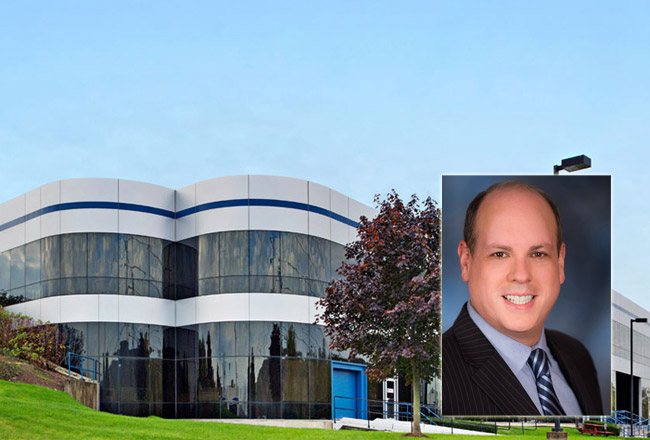Hybrid companies seen in Westchester’s future
An effort begun a year ago by Robert Martin Co. (RMC) to attract new biotechnology and high-tech companies to its Westchester properties has resulted in a medical technology company from New York City taking 7,000 square feet of space at 12 Skyline Drive in its Mid-Westchester Executive Park in Hawthorne.

Laurence Gottlieb, who heads the RMC Bio1 initiative, told the Business Journal that additional prospects are in the pipeline.
Clarapath, which was founded in 2014 and has been at the New York Genome Center in the SoHo section of Manhattan, provides services in the field of histopathology, the microscopic study of diseased cells and tissues. It has developed a device to help automate the lab work that”™s involved in examining tissue samples.
RMC launched its Bio1 initiative last October by naming Gottlieb as the company”™s managing director for life sciences and health technologies. From February 2013 to May 2018, Gottlieb was president and CEO of the Hudson Valley Economic Development Corp. (HVEDC). For more than three years before that he was director of economic development for Westchester County. His background also includes senior positions with public relations firms Burson-Marsteller and Nicholas & Lence Communications.
Gottlieb told the Business Journal that back in 2010 when he was with Westchester”™s Office of Economic Development and the economy was still recovering from the 2008-09 recession he noticed that one of the few industries that was hiring was the life sciences industry.
“I started meeting with as many executives as I could and I found out that they were not immune to what was happening in the recession, but that good research, good science in a way supersedes whatever is going on at the moment,” Gottlieb said. “I soon realized that we needed to place greater resources and greater attention on the life sciences industry.”
Gottlieb created an initiative that was called NY BioHud Valley and moved it over the HVEDC to make it a regional program.
Gottlieb said he had known Tim Jones and Greg Berger, the top executives at RMC, for many years and the subjects of the life sciences industry, health technologies and entrepreneurship had come up in various discussions.
“The challenge with the life sciences and medical device health technologies area is that it”™s highly specialized. You have to understand the language, understand the requirements. When you start swimming in the stream more and more opportunities come about because you”™re connecting into a network of people that are already connected,” Gottlieb said.
“Their needs are very different than just an office tenant,” Gottlieb said. “I told them back then that the vision will probably morph and evolve as the marketplace evolves because anything can happen to either accelerate the trend or disrupt the trend.
“In some respects, Covid has accelerated the trend of what we predicted, which was that companies would graduate out of smaller accelerator and incubator spaces in New York City and start looking for graduation space in the surrounding suburban areas. That”™s what”™s happening. That”™s what I had written down in a business plan over a year ago.”
He said that companies leaving the incubator environment and moving out into the real world can find themselves facing much higher operating costs. Part of the issue is finding space that is flexible for use as offices, laboratories, manufacturing and distribution centers.
Gottlieb said that RMC concluded that 12 Skyline Drive would be a good building to offer first in its RMC Bio1 program because it had the plumbing, ceiling height, electrical service, high-speed internet and other factors that would make it relatively easy to do high-tech build-outs.
It also is in an area close to the North60 life sciences campus to be built on 60 acres of county land in Valhalla as well as Regeneron Pharmaceuticals, Westchester Medical Center and New York Medical College with its incubator BioInc@NYMC.
Gottlieb noted that RMC selected BAM Architecture Studio, which specializes in the life sciences and health care fields, to collaborate on architectural aspects of the initiative.
“The reason we brought in BAM is we wanted a firm that had done this many times but also had done it here in Westchester County, so they understood the types of buildings that you tend to find in the county. They had done a lot of work for the types of clients that we would want and so we brought BAM in to help us clarify the vision of what could be done with the building,” Gottlieb said.
Gottlieb described himself as a futurist and sees tremendous growth opportunities for life sciences and health tech in Westchester with more than 80 such companies in the Hudson Valley.
“I”™m always looking at the trend lines, trying to read the tea leaves of what direction we”™re going. In my mind, many of the companies in the future for Robert Martin taking these flex/industrial spaces are going to be what I define as hybrid companies,” Gottlieb said.
He gave as an example a company that has developed a system to deliver drugs to resupply pharmacies and hospitals using drones or autonomous vehicles.
“You could categorize them as a medical or health technology company. You could categorize them as an aviation company because they”™re in the drone business. You could categorize them as a warehousing/delivery company. So really what they become is a hybrid company,” Gottlieb said.
“I can foresee in the future the vast majority of the companies that we”™re serving through the Robert Martin portfolio are going to be hybrid companies that have a certain science, engineering, technology and digital component. The more we understand how these companies work and what their requirements are the more we can apply that to grow the portfolio and serve the tenants”™ needs down the road.”